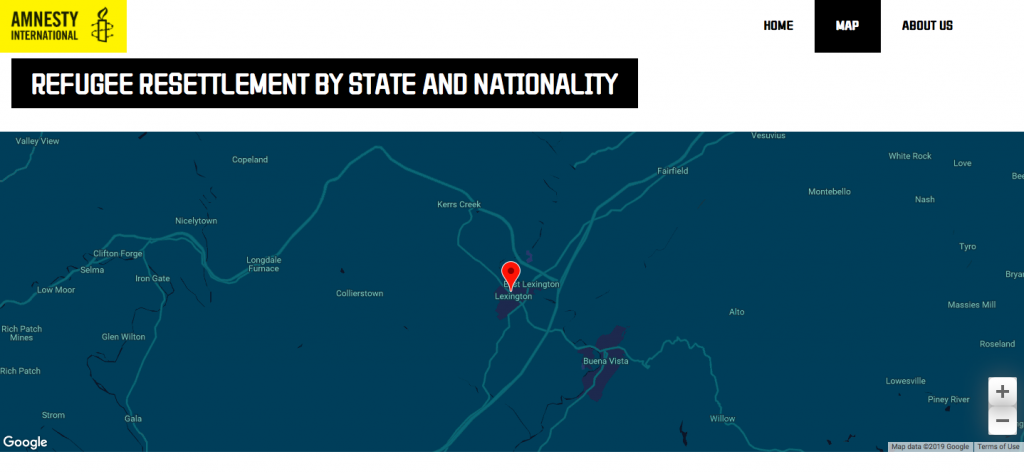In March, Amnesty International hosted a Hackathon, led by Co-President Mohini Tangri ’19. While Hackathons usually provide participants with a broad problem and give these participants a fixed time period of 24-48 hours to code a solution, Amnesty International’s Hackathon supported a specific goal: “to create a website for community sponsorship that can be added to Amnesty International USA’s national website that had an email list form creator and an interactive map for refugee resettlement.”

The motivation to do a Hackathon came from the enthusiasm of a first-year. Tara Kakkaramadam ’22 wanted to bring an event to campus that could join STEM students together for a human rights purpose, which in many ways, encompasses Digital Humanities at W&L.
Tangri and Kakkaramadam then began working with Amnesty International regional directors to brainstorm events the W&L chapter could host. This is how they reached the idea of a website with an interactive map that tracks refugee resettlement.
“They needed a website, and we made it!”
-Mohini Tangri ’19
Because they hadn’t done a Hackathon before, the students had to figure out the best way to accomplish their goals, and they did their research. They talked to professors and Computer Science majors in order to learn how to organize a Hackathon. Unlike most Hackathons, students participating in Amnesty International’s Hackathon applied and received assignments for roles within the Hackathon to keep everything organized and help it run smoothly.
Despite not knowing exactly what it would be like, the Hackathon went very well. The students almost finished the website. Struggling with disorganized data, of which they did not know before the Hackathon started, the group needed more time to work through the data and create the map. According to Tangri, “We would absolutely do it again. In all honesty we were a little surprised by the enthusiasm of the participants–we loved it, of course, but when we were coming up with the idea we were unsure of how many students would be willing to dedicate a full Saturday to something unrelated to school.” Luckily, they found themselves pleasantly surprised by the enthusiasm of W&L students and their dedication to applying the skills and concepts they learn in class to real-world scenarios and issues.
According to Tangri, Amnesty International “[needs] more excited STEM majors who are interested in the intersection of human rights and technology to do more things like this in the future!”
If you’re interested in getting involved, you can contact either Mohini Tangri or tangrim19@mail.wlu.edu or Tara Kakkaramadam at kakkaramadamt22@mail.wlu.edu to learn more about Amnesty International and its Hackathon.
This post was written using an interview with Mohini Tangri ’19.
-Jenny Bagger ’19, DH Undergraduate Fellow